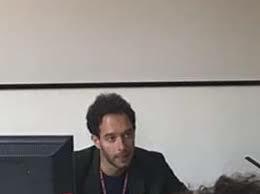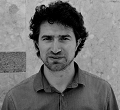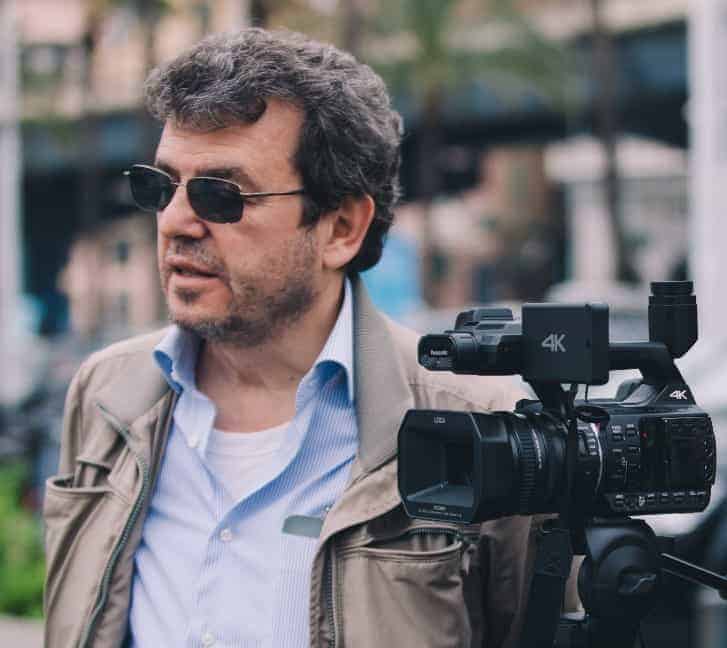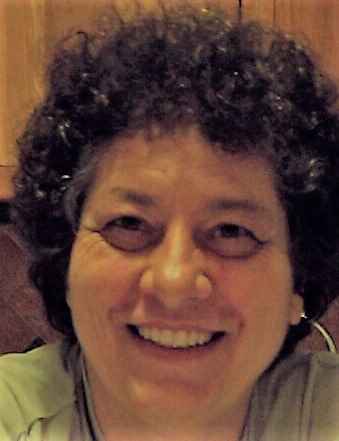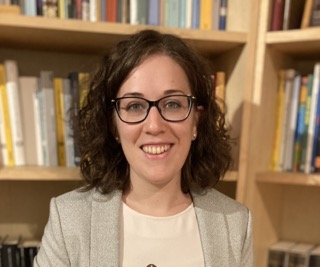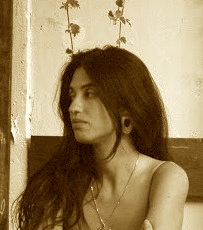Studying at the University of Verona
Here you can find information on the organisational aspects of the Programme, lecture timetables, learning activities and useful contact details for your time at the University, from enrolment to graduation.
Academic calendar
The academic calendar shows the deadlines and scheduled events that are relevant to students, teaching and technical-administrative staff of the University. Public holidays and University closures are also indicated. The academic year normally begins on 1 October each year and ends on 30 September of the following year.
Course calendar
The Academic Calendar sets out the degree programme lecture and exam timetables, as well as the relevant university closure dates..
| Period | From | To |
|---|---|---|
| CuCi IA | Sep 21, 2020 | Oct 31, 2020 |
| CuCi IB | Nov 9, 2020 | Jan 9, 2021 |
| CuCi IIA | Feb 15, 2021 | Apr 1, 2021 |
| CuCi IIB | Apr 14, 2021 | May 29, 2021 |
| Session | From | To |
|---|---|---|
| sessione d'esame invernale CuCi | Jan 11, 2021 | Feb 13, 2021 |
| sessione d'esame estiva CuCi | Jun 7, 2021 | Jul 24, 2021 |
| sessione d'esame autunnale CuCi | Aug 23, 2021 | Sep 18, 2021 |
| Session | From | To |
|---|---|---|
| sessione di laurea invernale 19-20 | Apr 7, 2021 | Apr 13, 2021 |
| sessione di laurea estiva 20-21 | Jul 5, 2021 | Jul 10, 2021 |
| Sessione autunnale di laurea a.a. 2020/21 | Nov 8, 2021 | Nov 13, 2021 |
| Sessione straordinaria di laurea a.a. 2020/21 | Mar 28, 2022 | Apr 2, 2022 |
| Period | From | To |
|---|---|---|
| Festa di Ognissanti | Nov 1, 2020 | Nov 1, 2020 |
| Chiusura Ateneo ponte Immacolata | Dec 7, 2020 | Dec 7, 2020 |
| Festa dell'Immacolata | Dec 8, 2020 | Dec 8, 2020 |
| Vacanze di Natale | Dec 24, 2020 | Jan 6, 2021 |
| Vacanze di Pasqua | Apr 2, 2021 | Apr 6, 2021 |
| Festa della liberazione | Apr 25, 2021 | Apr 25, 2021 |
| Festa del lavoro | May 1, 2021 | May 1, 2021 |
| Festa del Santo Patrono | May 21, 2021 | May 21, 2021 |
| Sospensione delle lezioni | May 22, 2021 | May 22, 2021 |
| Festa della Repubblica | Jun 2, 2021 | Jun 2, 2021 |
| Vacanze estive | Aug 9, 2021 | Aug 15, 2021 |
Exam calendar
Exam dates and rounds are managed by the relevant Culture and Civilisation Teaching and Student Services Unit.
To view all the exam sessions available, please use the Exam dashboard on ESSE3.
If you forgot your login details or have problems logging in, please contact the relevant IT HelpDesk, or check the login details recovery web page.
Should you have any doubts or questions, please check the Enrollment FAQs
Academic staff
 alessandro.bigardi@univr.it
alessandro.bigardi@univr.it
 giacomo.buoncompagni@univr.it
giacomo.buoncompagni@univr.it

Migliorati Lorenzo
 lorenzo.migliorati@univr.it
lorenzo.migliorati@univr.it
 045802 8135
045802 8135
 alberto.scandola@univr.it
alberto.scandola@univr.it
 antonella.toffali@univr.it
antonella.toffali@univr.it
 elena.zilotti@univr.it
elena.zilotti@univr.it
Study Plan
The Study Plan includes all modules, teaching and learning activities that each student will need to undertake during their time at the University.
Please select your Study Plan based on your enrollment year.
1° Year
| Modules | Credits | TAF | SSD |
|---|
1 module between the following1 module among the following2° Year activated in the A.Y. 2021/2022
| Modules | Credits | TAF | SSD |
|---|
1 module among the following1 module among the following| Modules | Credits | TAF | SSD |
|---|
1 module between the following1 module among the following| Modules | Credits | TAF | SSD |
|---|
1 module among the following1 module among the following| Modules | Credits | TAF | SSD |
|---|
Legend | Type of training activity (TTA)
TAF (Type of Educational Activity) All courses and activities are classified into different types of educational activities, indicated by a letter.
Textual analysis, contemporary literature and newspaper writing (m) (2020/2021)
The teaching is organized as follows:
Learning outcomes
1ST MODULE The course offers a proficiency in textual and linguistic analysis of the journalistic texts of various origins, typology and destination, as a premise for a professional use of journalistic Italian language. 2ND MODULE The course aims to introduce the student to the study of modern and contemporary Italian literature, with particular attention to the experience of writers who, during the twentieth century, have engaged in the journalistic or editorial field. Through the study of an exemplary case, the student, at the end of the course, will have to demonstrate to know the relationships between literature, publishing and journalism, as well as being able to read and analyze texts and situate them in the history of Italian literature.
Program
------------------------
MM: ANALISI DEL TESTO E SCRITTURA GIORNALISTICA (M)
------------------------
Contents of the course The course is divided into four main parts:
1) General characters of journalistic language: variabilty due to the type of the newspapers, to cultural or political position, to thematic sections, to diachrony; prevalent linguistic models; communicative functions: news and comment.
2) Italian language of journalism: syntax, lexicon, rhetorc, argumentation.
3) Journalism and new media: consequences on language and textual structure.
4) Text typologies: layout; headlines; linguistic and argumentative features of different article's types; text analysis.
MATERIALS AND DIDACTIC METHOD
During the lectures the topics of the four thematic areas of the course will be explained through specific textual analyzes of the different types of articles, in order to define their fundamental peculiarities. The e-learning platform will be used to provide additional material useful for lectures and more generally for active communication with students, regarding the bibliography, the topics of study and any other information concerning the course. In the last part of the course (2-3 lessons) students will be invited to exhibit in the classroom and discuss the results of the analysis of a journalistic text with their classmates and teacher.
Non-attending students will be supported with regard to the textbooks, also through the e-learning platform.
The content of the textbooks, as well as the lessons and exercises, is part of the program.
------------------------
MM: LETTERATURA, EDITORIA E GIORNALISMO (M)
The course intends to investigate the literary works of Natalia Ginzburg, from narrative to journalistic works. In particular, the course will be organized according to following point:
1. Portrait of Natalia Ginzburg
2. Natalia Ginzburg and the collaboration with Einaudi publishing house
3. The narrative work of Natalia Ginzburg
4. Reading and commentary of two exemplary works: Lessico familiare (1963) and Caro Michele (1973)
5. Journalistic writing and collaboration with newspaper («La Stampa», «Il Giorno», «Corriere della Sera»)
6. Reading and commenting on journalistic texts: Mai devi domandarmi (1970) and Vita immaginaria (1974)
DIDACTIC METHOD
Lectures, with moments of exchange between teacher and students for the reading and analysis of texts.
DIDACTIC MATERIALS
In addition to the bibliography indicated below, other materials will be uploaded during the course on the e-learning platform. Non-attending students are asked to contact the teacher for additional bibliography.
------------------------
Bibliography
| Author | Title | Publishing house | Year | ISBN | Notes |
|---|---|---|---|---|---|
| Massimo Palermo | Italiano scritto 2.0. Testi e ipertesti, cap. 1-2-3 | Carocci | 2017 | ||
| Ilaria Bonomi | La lingua dei quotidiani, in La lingua italiana e i mass media, a cura di Ilaria Bonomi, Andrea Masini e Silvia Morgana, pp. 127-164 | Carocci | 2004 | ||
| Luca Serianni | Leggere, scrivere, argomentare. Prove ragionate di scrittura | Laterza | 2013 | ||
| Andrea Masini | L'italiano contemporaneo e la lingua dei media, in La lingua italiana e i mass media, a cura di Ilaria Bonomi, Andrea Masini e Silvia Morgana, pp. 11-32 | Carocci | 2004 | ||
| Riccardo Gualdo | L’italiano dei giornali. | Carocci | 2017 | ||
| Massimo Palermo | Italiano scritto 2.0. Testi e ipertesti, cap. 1-2-3 | Carocci | 2017 | ||
| Ilaria Bonomi | La lingua dei quotidiani, in La lingua italiana e i mass media, a cura di Ilaria Bonomi, Andrea Masini e Silvia Morgana, pp. 127-164 | Carocci | 2004 | ||
| Andrea Masini | L'italiano contemporaneo e la lingua dei media, in La lingua italiana e i mass media, a cura di Ilaria Bonomi, Andrea Masini e Silvia Morgana, pp. 11-32 | Carocci | 2004 | ||
| C. Salabé (ed.) | Ecocritica. La letteratura e la crisi del pianeta | Donzelli | 2013 | ||
| Clotilde Bertoni | Letteratura e giornalismo (Edizione 4) | Carocci | 2015 | Prima edizione: 2009 | |
| Laura Centemeri | Ritorno a Seveso | Bruno Mondadori | 2006 | ||
| Laura Conti | Una lepre con la faccia da bambina | Editori Riuniti | 1982 |
Examination Methods
------------------------
MM: ANALISI DEL TESTO E SCRITTURA GIORNALISTICA (M)
------------------------
For all students, attending and not attending, examination includes a written test, which will consist of a series of open questions.
The objectives of the assessment test are:
a) verify the analytical knowledge of the topics of the program;
b) verify the capacity for reflection and elaboration in relation to specific topics.
All students, attending and not attending, are also required to present, before the exam date, a written essay containing a brief linguistic and structural analysis of a journalistic text to be agreed with the teacher.
The final vote will consider the results of the classroom test and the written essay.
------------------------
MM: LETTERATURA, EDITORIA E GIORNALISMO (M)
Written test so organized: three open questions on the aspects discussed during the course.
At least one of the questions includes analysis and commentary on the texts.
The duration of the test will be two hours.
The questions will be different for attending and not-attending students.
------------------------
Type D and Type F activities
| years | Modules | TAF | Teacher |
|---|---|---|---|
| 1° 2° | "Common world. 2022 Arendt Seminars | F |
Olivia Guaraldo
(Coordinator)
|
| 1° 2° | Workshop on transmedia storytelling | F |
Elena Zilotti
(Coordinator)
|
| 1° 2° | "Shake Shakespeare Up!" workshop | F |
Silvia Bigliazzi
(Coordinator)
|
| years | Modules | TAF | Teacher |
|---|---|---|---|
| 1° 2° | "Common world. 2022 Arendt Seminars | F |
Olivia Guaraldo
(Coordinator)
|
| 1° 2° | PhD Conference 2021: Margins and Forgotten places | F |
Simona Brunetti
(Coordinator)
|
| 1° 2° | Workshop on digital publishing | F |
Andrea Bongiorni
(Coordinator)
|
| 1° 2° | Workshop on transmedia storytelling | F |
Elena Zilotti
(Coordinator)
|
Career prospects
Module/Programme news
News for students
There you will find information, resources and services useful during your time at the University (Student’s exam record, your study plan on ESSE3, Distance Learning courses, university email account, office forms, administrative procedures, etc.). You can log into MyUnivr with your GIA login details: only in this way will you be able to receive notification of all the notices from your teachers and your secretariat via email and soon also via the Univr app.
Graduation
List of theses and work experience proposals
| theses proposals | Research area |
|---|---|
| Laureandi Editoria e Giornalismo: vademecum | Various topics |
| TESI SU COMUNICAZIONE DELL’AGROALIMENTARE | Various topics |
| Stage | Research area |
|---|---|
| Proposte stages - Centro di ricerca Skenè | Various topics |
| TIROCINIO IN GIORNALISMO E SOCIAL MEDIA | Various topics |









